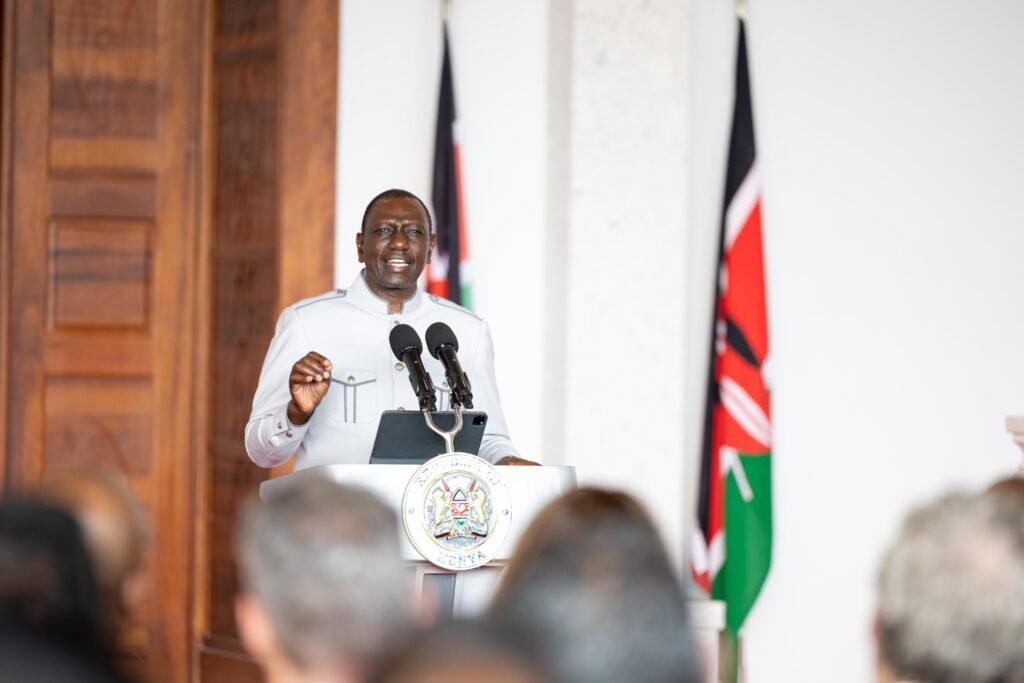The government has secured Sh27 billion to connect 280,000 households to electricity under the Last Mile Connectivity Project.
President William Ruto on Monday May 27, 2024, said the funds will strengthen the government’s ambitious plan of achieving universal access to electricity by 2030.
The President said the power lines erected under this programme will also transmit fibre optic cables, ensuring universal Internet access.
“We are moving government services to the digital space, and ICT hubs are coming up across the country. We are moving our business to e-commerce; we are moving our learning to e-learning; we are moving health to e-health. Therefore, the Internet is as important as electricity,” Ruto said.
The Head of State made the remarks during the signing ceremony of the Last Mile Electricity Connectivity contracts at the State House Nairobi.
The funds have been provided by the European Union, French Development Agency and European Investment Bank.
He said the government is working on a similar electricity connectivity programme worth Sh22 billion with the Africa Development Bank and Saudi Arabia to connect more than 270,000 customers.
The President commended the programme, saying it has expanded the electricity grid to underserved areas, bridging the development gap between urban and rural communities.
He said that over the past decade, the government has increased electricity access from 27% in 2013 to over 76% today.
“This means that 9.6 million Kenyan households are connected to electric power,” he said.
- Electricity access in Africa higher than previous estimates
- Kenya maps out highway charging ports to drive electric vehicle adoption
The President said electricity is a key driver of the Bottom Up Economic Transformation Agenda that is designed to achieve economic inclusivity.
President Ruto said the Last Mile Connectivity Project has enabled businesses in rural areas to flourish, contributing significantly to the country’s GDP and creating numerous job opportunities.
“The Micro, Small, and Medium Enterprises, which are the engine of our economy, benefit immensely from reliable power, enabling them to operate efficiently and expanding their reach,” he said.
He said the programme has also revolutionised the country’s agricultural sector, powering irrigation systems and agro-processing units, thereby boosting productivity and ensuring food security.
Additionally, he said, it has enhanced educational opportunities, and improved healthcare services.
He observed that reliable power will drive digital initiatives such as the Hustler Fund and ensure that small businesses thrive and drive economic growth.
“Universal access is therefore fundamental to achieving economic inclusivity,” he added.



